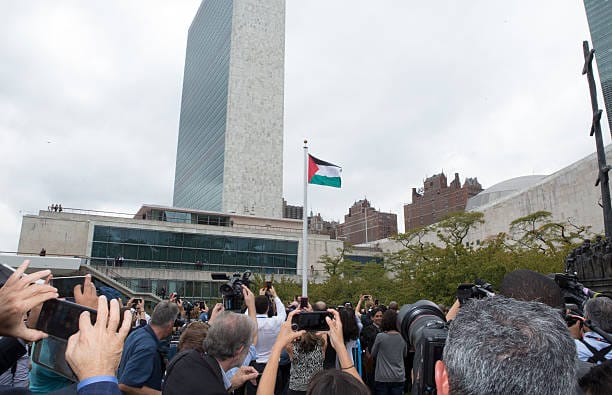United Nations' Failure to Protect Palestine: A Historic Injustice

For decades, the conflict between Israel and Palestine has remained one of the world's most contentious and unresolved disputes. The United Nations (UN), tasked with maintaining global peace and security, has continually failed to protect the rights of the Palestinian people, leaving millions to endure occupation, displacement, and violence. Despite repeated calls for intervention and justice, the UN's inaction has exposed its limitations in addressing this enduring crisis.
A Legacy of Broken Promises
The UN first became involved in the Israel-Palestine conflict in 1947, when the General Assembly adopted Resolution 181, recommending the partition of Palestine into separate Jewish and Arab states. However, the plan was rejected by Arab leaders, and subsequent wars and conflicts have resulted in the occupation of Palestinian territories, most notably the West Bank, Gaza Strip, and East Jerusalem.
Since then, the UN has passed countless resolutions calling for an end to the occupation, the withdrawal of Israeli forces from occupied lands, and the recognition of Palestinian statehood. Yet, these resolutions have largely gone unenforced. One of the most significant failures came after the Six-Day War in 1967, when Israel occupied the West Bank and Gaza. Despite Security Council Resolution 242 calling for Israeli withdrawal, little has changed on the ground.
The Gaza Blockade and UN Paralysis
The Gaza Strip, home to over 2 million Palestinians, has become a symbol of the UN's inability to intervene effectively. For over a decade, Gaza has been subjected to a crippling blockade by Israel, severely restricting the movement of people and goods. This blockade has led to humanitarian crises, with UN agencies themselves acknowledging the unlivable conditions in Gaza. Yet, the UN has been unable to enforce international law or pressure Israel to lift the siege.
Repeated military conflicts between Israeli forces and Palestinian factions in Gaza have only exacerbated the suffering. Each outbreak of violence brings mass civilian casualties, the destruction of homes and infrastructure, and further isolation. Despite the clear violations of international law, including the targeting of civilians, the UN has failed to hold Israel accountable. The Security Council’s paralysis, largely due to the U.S. veto power in favor of Israel, has rendered the UN ineffective in its mission to protect Palestinian civilians.
Human Rights Violations and Inaction
Palestinians in the West Bank face daily hardships due to military occupation, including the expansion of Israeli settlements, house demolitions, and forced evictions. These actions are in clear violation of international law, as outlined in the Fourth Geneva Convention. The International Court of Justice (ICJ) has also ruled that the construction of the Israeli separation wall within the West Bank is illegal. Yet, despite these violations, the UN has been unable to prevent or reverse these actions.
The continued expansion of Israeli settlements in the West Bank, which the UN and many other international bodies consider illegal, has undermined the two-state solution that the UN has long championed. The lack of enforcement of resolutions condemning these settlements has emboldened further encroachments on Palestinian land, making the prospect of a sovereign Palestinian state increasingly unattainable.
The Failure of Diplomatic Efforts
Over the years, the UN has hosted numerous peace talks and initiatives aimed at resolving the Israeli-Palestinian conflict, yet none have resulted in a lasting peace. The Oslo Accords of the 1990s, which were hailed as a major breakthrough, have since crumbled, with key provisions never fully implemented. The UN’s role in facilitating these negotiations has been undermined by its inability to enforce agreements or penalize parties that violate terms.
Meanwhile, Palestinians continue to face daily hardships under Israeli occupation, with little recourse to international justice. The International Criminal Court (ICC) has opened investigations into alleged war crimes in the region, but Israeli leaders have dismissed the court's authority, and the UN has not pushed for stronger enforcement mechanisms.
Conclusion: A System in Crisis
The UN's failure to protect Palestine reflects deeper flaws in the international system. Despite its founding principles of promoting peace, justice, and human rights, the organization has repeatedly faltered when it comes to holding powerful states accountable. The ongoing suffering of the Palestinian people, compounded by decades of UN inaction, has eroded faith in the international community’s ability to uphold its moral and legal obligations.
Without significant reforms, particularly in the structure of the UN Security Council and its veto power, the prospects for a fair and just resolution to the Israel-Palestine conflict remain bleak. For Palestinians, the UN’s inability to protect them represents a betrayal of the principles the organization was created to defend, leaving them to continue their struggle for justice and statehood with little hope of international intervention.
